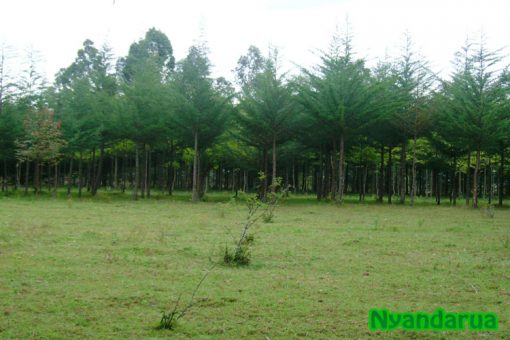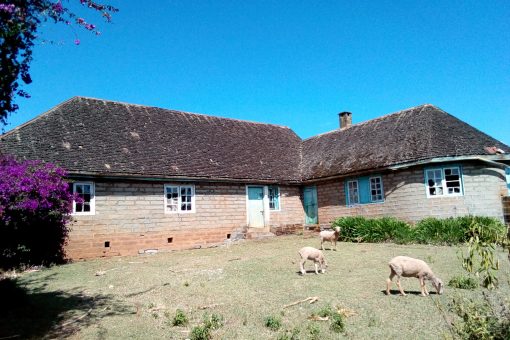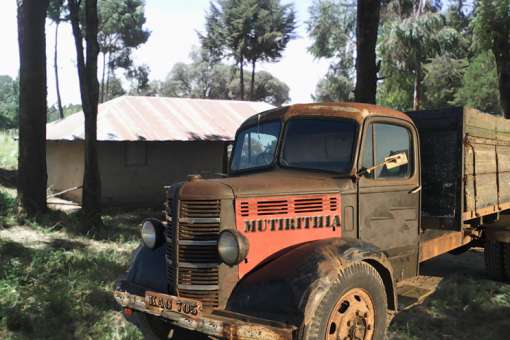Still on my first week, with shock and awe still swirling in my head, my sister and her husband took me to a restaurant. I was intimidated to death. The hotel was too clean and organized. I was not used to that kind of order. Then came the waiter with the menus. My heart skipped a beat. What could I order in a place like this. Do they have Githeri, Mukimo, Ugali or dishes like that which were familiar to me? My sister must have sensed my discomfort so she ordered for me. We were all having Chips and Sausages. I do not think that was a meal they would normally order in this restaurant, but this ‘simple’ meal was ordered for my benefit. Or so they thought.
When the food was placed in front of me, nothing on that plate looked familiar, except the tomato slices. I had no idea what the strange looking food was, some of it was uncooked, it looked like some weeds my brothers feed their pet rabbits (mithunga). I was in full panic mode. I wondered how this strange food would taste in my mouth and my most immediate concern was how I was going to eat it. On the table there was a fork and knife. I had only used a spoon all my life. We did not own a single fork in OlKalou and the only knives we had were kitchen knives for peeling potatoes and chopping meat and vegetables. This knife in front of me looked blunt but was serrated like a carpenters’ saw. What was I to do with it? I watched and waited.
My sister and her husband unwrapped their napkins and put them on their laps. I followed suit. Then they grabbed a fork with the left hand and the knife with the right. I followed suit. The only problem was that, the way I held my knife and fork was way different from the way they were holding theirs. Theirs seemed to work as they cut up their sausage with the knife while holding it down with the fork. I tried, but my fork only kicked the sausage from one end of the plate to the other as it clanked on the plate loudly drawing unwanted attention. My brother in law laughed out loud saying “Nikii wanyiita huma ta itimu?” translation: why are you holding the fork like a javelin” I was embarrassed and started sweating.
Everything went downhill from that point. My next attempt to nail the sausage down with the fork sent it flying to the floor, narrowly missing the diners at the next table. My party laughed out again and other diners looked at me with wondering eyes. For them, even their youngest kids were eating with forks and doing just fine. Not so for me. My sister asked me to eat my chips and the remaining sausages with my hands. I was glad but also embarrassed because I was the only one eating with my hands in an upscale restaurant.
I hated that experience and missed OlKalou where my brothers and I ate with our hands if we choose to and it was OK. The chips and the sausages tasted amazing, like nothing I had ever tasted before, but I could not wait to get back home to OlKalou to my familiar surroundings where nobody judged how we ate our food, how often we bathed or how we dressed. Our OlKalou community recognized us anywhere as the children of our mother and they loved us for who we were. No questions asked.
The above experience makes me recognize the meaning of words echoed in a theme song of a popular TV show of the 1980s titled ‘Cheers’. It went like this:
Sometimes you want to go
Where everybody knows your name,
And they’re always glad you came;
You want to be where you can see,
Our troubles are all the same;
You want to be where everybody knows your name.



